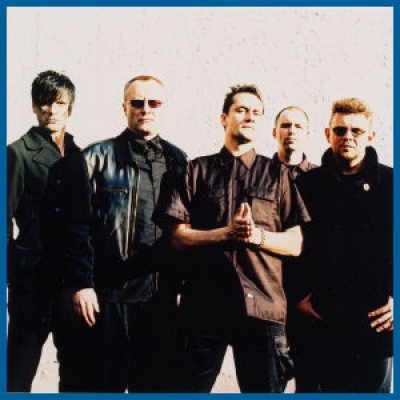
Die Krupps
Along with Front 242, the German group Die Krupps stands as one of the innovators of the subgenre of Euro-rock dubbed body music, a sound characterized by its dense electronic makeup as well as its harsh, visceral execution. Die Krupps came together in 1981 as a duo comprised of vocalist, guitarist, keyboardist, and mouthpiece Jurgen Engler, formerly of the German punk outfit Male, and ex-Propaganda member Ralf Dorper. Over the course of the groups first three records — 1981s Stahlwerksinfonie, 1982s Volle Kraft Voraus, and 1984s Entering the Arena — Die Krupps continued to refine its lyrically bleak, synth-based sound. (A two-record retrospective covering these three LPs, Metalle Maschinen Musik 91-81 Past Forward, appeared in 1991.) The mid-80s marked a fallow period for the band, and it was not until the 1992 release of the album One that it became clear exactly what Die Krupps had been doing over the preceding eight years — basically, listening to Metallica and other metal innovators. Both One and its 1992 follow-up Metal for the Masses Part II — A Tribute to Metallica found the groups signature sound augmented by metal guitars, which enabled Die Krupps to cross over to hard rock audiences while still maintaining its electronic music fanbase. 1993s Die Krupps Box, a three-disc box set, preceded the same years release of The Final Option, which found Engler and Dorper joined by ex-Heathen guitarist Lee Altus and drummer Darren Minter. In 1994, a remix album, titled The Final Mixes, featured contributions from artists like the Sisters of Mercys Andrew Eldritch, Nitzer Ebbs Julian Beeston, Gunshot, and Jim Martin, formerly of Faith No More. A year later, Odyssey of the Mind found the group moving even further from its electronic roots. Isolation, a collection of Odyssey of the Mind remixes and live tracks, appeared in 1996.
